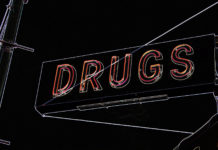Pervasive Industry Influence in Healthcare Sector Harms Patients
Experts across the globe point to the harms of drug companies’ influence on research, practice, and education in healthcare noting that it compromises patient care.
Paying Doctors to Diagnose More Depression is Unethical
It is "unethical" for the British government to establish expected rates of depression and to pay doctors per diagnosis to increase the diagnosing of...
Researchers Find that Textbooks Include Biased Information About ADHD
A review of academic textbooks finds that they often leave out effect sizes and molecular genetics findings, both of which suggest minimal impact of genetics on ADHD. Instead, textbooks focus on overblown conclusions from behavioral studies.
“Evolutionary Forces Are Causing a Boom in Bad Science”
From the New Scientist: “Paul Smaldino and Richard McElreath at the University of California Davis used an evolutionary theory-based computational model to analyse the problem of bad...
New Study Asks Doctors About Barriers to Deprescribing
Researchers interviewed doctors about the barriers that prevent them from being able to decrease excess medications.
Researchers Highlight Pitfalls of Cognitive Assessment in Schools
Historical, current, and potential future complexities of cognitive assessment; a longstanding, controversial fixture in schools throughout the United States.
The Most Promoted Drugs are Those with Little Therapeutic Value, Study Finds
Majority of top-selling and most promoted drugs in Canada are rated as having very limited safety and efficacy.
“BMJ Editor Fiona Godlee Takes on Corruption in Science”
In this video from CBC News, BMJ editor Fiona Godlee takes on “corruption of the scientific process.” "There will be commercial pressures, academic pressures,...
Large Rigorous Study Debunks Popular Gene-Environment Theory of Depression
A large and rigorous meta-analysis fails to find support for the gene-environment interaction theory of depression.
University of Minnesota Ends Recruiting of Research Subjects on Involuntarily Holds
The University of Minnesota announced a change to its research ethics policies this month after coming under criticism “following the recruitment of a schizophrenia...
“Institutional Corruption Blamed for Dramatic Increase in Drug Adverse Events and Deaths”
Pharmaguy investigates the rise of adverse event reports filed each year and reports on a new article in the Journal of Law, Medicine and Ethics ("Institutional...
Government Accountability Office Criticizes Federal Mental Health System
-The US Government Accountability Office says it is "in the dark" about the effectiveness of federal mental health programs.
How Academic Psychiatry Minimized SSRI Withdrawal
If academic psychiatry is evidence-based, why did it take two decades to recognize SSRI withdrawal as widespread and chronic among patients?
Outcome Reporting Bias in Antipsychotic Medication Trials
A new study in the journal Translational Psychiatry, an influential journal in biological psychiatry published by Nature, challenges the state of the research on antipsychotic drugs.
“Evidence-Based Medicine”: Corporate Medicine’s Instrument
From Medium: The notion of "evidence-based medicine" is that a particular treatment is considered effective if research finds it safe and efficacious in the majority...
“Why People Take Antipsychotics For Depression”
-Buzzfeed looks at the history -- and present -- of how antipsychotic drugs became a common treatment for depression, despite their apparent lack of effectiveness.
American Psychological Association Engaged in “Well-orchestrated Misdirection”
-A Forbes article argues that the American Psychological Association's public response to the report on the CIA torture program "has been a well-orchestrated misdirection."
The Changing Role of the Pharmaceutical Representative
From the Center for Health Journalism: Due to drug safety scandals and rising drug prices, pharmaceutical representatives are increasingly being criticized by physicians, medical schools, and...
National Initiative Launched to Get People Out of Prisons and Into Treatment
The American Psychiatric Foundation has announced the launch of a pharmaceutical company-funded national initiative to move people from jails into psychiatric care.
“New Pill for Boosting Female Libidos Off to a Slow Start”
Ed Silverman reports that only 80 prescriptions for Addyi, or Flibanserin, were filled in the drugs’ first two weeks on the market.
Article →
The Onion: “‘Seek Funding’ Step Added To Scientific Method”
"After making an observation and forming a hypothesis as usual, the new third step of the scientific method will now require researchers to embark upon an exhaustive search for corporate or government financing,” the satirical news site the Onion “reports.” “Next, scientists simply modify their study’s goals to align with the vision of potential funders and wait for several months to hear back. At this point—should this step be successful, of course—they can move on to the experimental stage, and then to analysis.”
“Are America’s High Rates of Mental Illness Actually Based on Sham Science?”
-MIA News Editor Rob Wipond examines the questionable sources of statistics like "1 in 5 Americans are mentally ill" and "90% of people who commit suicide have a mental illness."
Psychiatrists’ Fear of Death Linked to Negative Feelings Towards Certain Patients
-A survey of 120 psychiatrists found that the more psychiatrists fear death, the more negative emotions they have towards people diagnosed with borderline personality disorder.
More Lavish the Gifts to Doctors Means Costlier Drugs Prescribed
From The New York Times: A new study found that when drug companies give gifts to doctors, the doctors prescribe higher quantities of — and more expensive —...
“A Decade of Questions over a Paxil Study Vindicated”
Martha Rosenberg calls the reanalysis of Paxil and Study 329 “a victory for safety activists, medical reporters, the public and freedom of the press.” But, she warns, “many pro-pill doctors continue to fight evidence of Paxil’s suicide risks and similar SSRIs.”




















